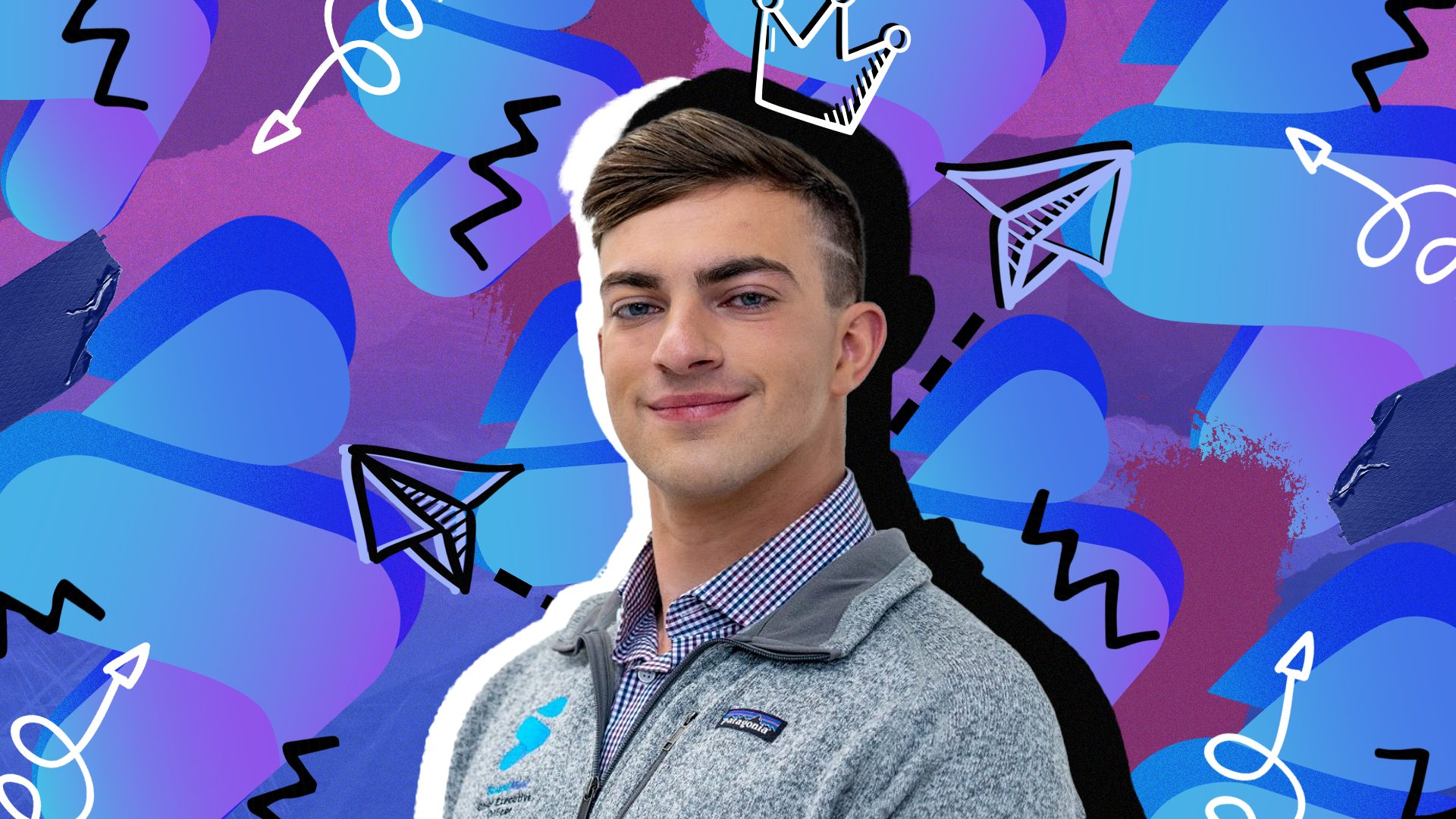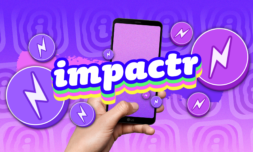Fuelled by a dedication to serve others, Gen Z entrepreneur Brian Femminella founded SoundMind, a company combining the power of music therapy with technology to help those suffering from trauma, anxiety, and depression.
‘My niche seems to be doing something that immediately assists the public in one way or another,’ says Brian Femminella.
A Gen Z entrepreneur at just 21-years-old, Brian has a profound understanding of mental health and feels an urgent need to destigmatise it. He has undertaken numerous ventures throughout his life purely to help others, working with fire departments, EMT services, the military, and the LGBTQ+ community.
His awareness of human struggle has helped guide Brian throughout his career, from teenage soldier to political science and digital forensics student at USC.
SoundMind is his latest project, a start-up company that’s combining the power of music therapy with technology to help those suffering from trauma, anxiety, and depression. He’s the co-founder and CEO, too. Not bad for a 21-year-old.

The road to advocacy
‘I’ve wanted to do something for the greater good for as long as I can remember,’ says Brian, speaking to me virtually from a room you’d expect of someone with a such a packed CV.
Posters quoting Steve Jobs and Obama line the walls, alongside a whiteboard that offers a brief glimpse of his jam-packed schedule.
‘Joining the military at seventeen is when this passion escalated,’ he adds, having witnessed first-hand the emotional toll that military personnel face.
The catalyst for his philanthropy, he explains that this commitment taught him a great deal about people, specifically the importance of fostering a community absent of materialistic expectations and societal divides.
‘When you’re in the same uniform, from different backgrounds, on the same mission, it doesn’t matter who you are, where you come from, or what you look like, you’re all contributing to a unified goal. This humbled me significantly and opened my eyes to the strength of collective empowerment.’

In highlighting the value of ensuring we aren’t left to cope alone, this environment of inclusivity and acceptance also led Brian to question why male mental health is so often removed from the wider conversation.
Particularly given that three times as many men as women die from suicide every year and are, on average, much less likely to seek therapy.
‘The hyper-masculinity complex sees men chasing an unrealistic ideal of strength in which they must supress their emotions,’ he says, telling me he’s still – and always will be – grappling with his own identity.
‘With any deviation from this deemed weak, I’ve watched as many of my closest friends have isolated themselves and self-destructed as a result. We should strive to abolish these preconceptions, break down defence mechanisms, and embrace vulnerability. This is what I’m looking to fix.’
Fortunately the tide is turning, slowly but surely. Take the extraordinary medical potential of psychedelic drugs, for example, which is increasingly being recognised by prolific figures working in the mental health space across the globe.

Referencing existing treatments which he deems revolutionary (administered in a controlled setting, of course) Brian says this is symbolic of a broader shift.
‘It’s incredible to see the effects of mindset transformation,’ he says. ‘This applies to a lot of things – organisations rarely addressed mental health pre-Covid and now it’s relevant – it all ties into the notion that having these discussions will ultimately push change forward.’
And, with inspiring openness more essential than ever before following a pandemic that brought with it a tsunami of psychological problems and drew attention to how much we rely on human connection to function, Brian stresses that we should be using social media in our favour. To ensure no one has to suffer in silence again, responsibility lies in the hands of those with a platform.
‘You need to use what you have to represent how you’re actually able to listen to and influence the people who support you. Issues that impact all of us can be dealt with by letting individuals be vocal about their personal troubles.’
So, how is Brian using his?

Advancing the field of mental health research with music & tech
Inspired by seeing people’s mental health in the worst possible conditions, Brian co-founded SoundMind with Travis Chen, who shares the same dream of championing impactful practices to make a difference.
‘The idea stems from my never-ending dissatisfaction with being unable to help friends going through severe trauma,’ says Brian. ‘I always try to offer a solution; I hate not having one.’
The product of their action, which took over two years of research and studies on thanatosonics (the relationship between violence and sound), cognitive feedback, and binaural beats to develop, is a mobile application that takes a commendably unique approach to guiding users through their healing process. How? With music.
‘SoundMind is an audio and visual wellness app using the power of sound,’ says Brian.
‘It includes a personalised audio soundscape composer for users to mitigate their auditory triggers, 3D visual therapy, mood tracking, and more to help users create a journey that is able to best suit their individual preferences.’
To navigate the 3,500+ sounds and 100+ curated musical pieces – all created in house and immediately available – users can swipe right on what they enjoy and left on what they don’t. The more they engage with this interactive machine learning feature, the more SoundMind can understand their needs.























